Jeep Compass vs VW Polo – Which car suits you better?
Compare performance, boot capacity, efficiency and price at a glance.
Find out which car is the better choice for you – Jeep Compass or VW Polo?
Costs and Efficiency:
Price and efficiency are key factors when choosing a car – and this is often where the real differences emerge.
VW Polo has a decisively advantage in terms of price – it starts at 17000 £, while the Jeep Compass costs 34200 £. That’s a price difference of around 17199 £.
Fuel consumption also shows a difference: VW Polo manages with 5.10 L and is therefore a bit more efficient than the Jeep Compass with 5.80 L. The difference is about 0.70 L per 100 km.
Engine and Performance:
Under the bonnet, it becomes clear which model is tuned for sportiness and which one takes the lead when you hit the accelerator.
When it comes to engine power, the Jeep Compass has a minimal edge – offering 213 HP compared to 207 HP. That’s roughly 6 HP more horsepower.
In acceleration from 0 to 100 km/h, the VW Polo is clearly perceptible quicker – completing the sprint in 6.50 s, while the Jeep Compass takes 8.50 s. That’s about 2 s faster.
In terms of top speed, the VW Polo performs evident better – reaching 240 km/h, while the Jeep Compass tops out at 188 km/h. The difference is around 52 km/h.
There’s also a difference in torque: Jeep Compass pulls minimal stronger with 345 Nm compared to 320 Nm. That’s about 25 Nm difference.
Space and Everyday Use:
Cabin size, boot volume and payload all play a role in everyday practicality. Here, comfort and flexibility make the difference.
Both vehicles offer seating for 5 people.
In curb weight, VW Polo is clearly lighter – 1143 kg compared to 1667 kg. The difference is around 524 kg.
In terms of boot space, the Jeep Compass offers evident more room – 550 L compared to 351 L. That’s a difference of about 199 L.
In maximum load capacity, the Jeep Compass performs distinct better – up to 1561 L, which is about 436 L more than the VW Polo.
Who wins the race?
The VW Polo proves to be outperforms in nearly all aspects and therefore becomes our DriveDuel Champion!
VW Polo is the better all-rounder in this comparison.
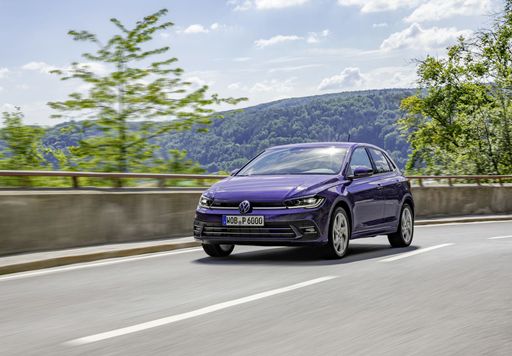 @ Volkswagen AG / VW Media
@ Volkswagen AG / VW Media
VW Polo
Jeep Compass
The Jeep Compass packs classic Jeep styling with a surprisingly composed demeanor, equally at home turning heads in the city or tackling a weekend dirt track. Inside it's a pragmatic, user-friendly compact SUV that prioritizes comfort and versatility — a smart pick if you want a dose of adventure without giving up everyday sense.
details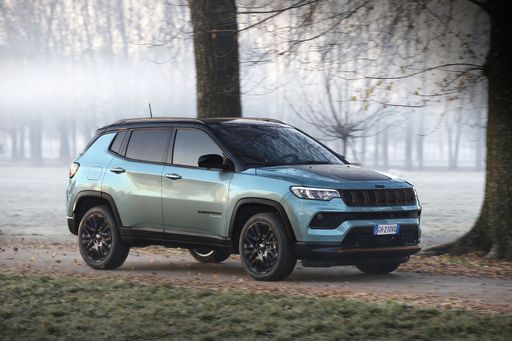 @ Jeep / Stellantis Media
@ Jeep / Stellantis Media
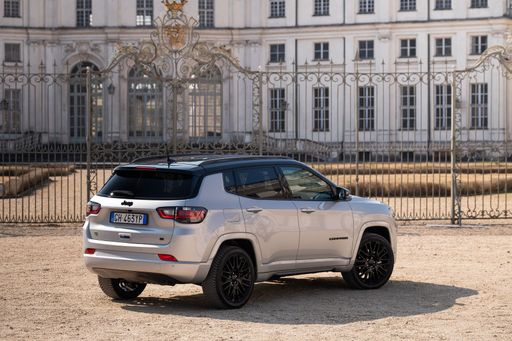 @ Jeep / Stellantis Media
@ Jeep / Stellantis Media
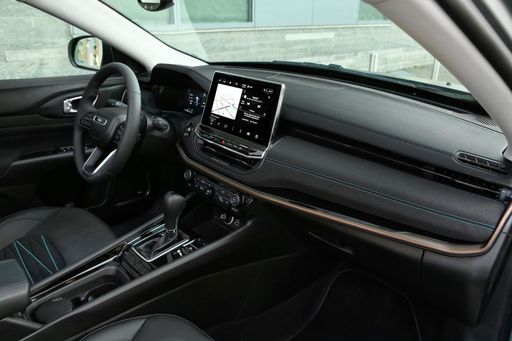 @ Jeep / Stellantis Media
@ Jeep / Stellantis Media
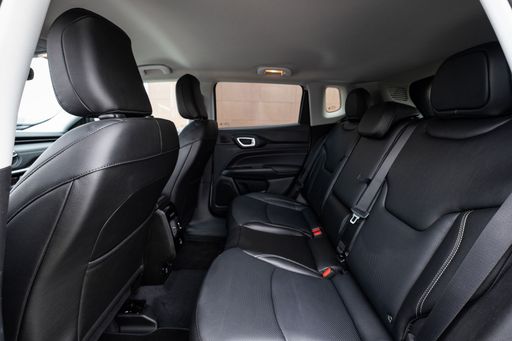 @ Jeep / Stellantis Media
@ Jeep / Stellantis Media
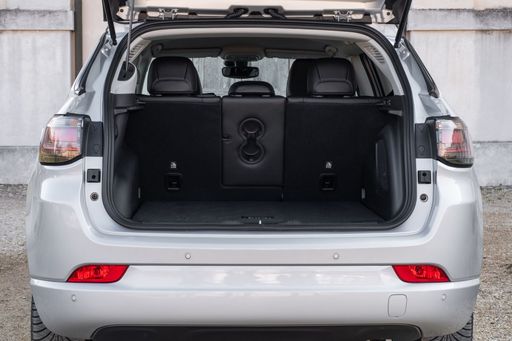 @ Jeep / Stellantis Media
@ Jeep / Stellantis Media
VW Polo
The Polo is a small car with surprisingly grown-up refinement, delivering comfortable packaging, crisp handling and a build quality that punches above its class. For buyers who want a practical, fuss-free hatch that still feels a little premium, it’s a sensible, slightly cheeky choice you’ll enjoy every day.
details @ Volkswagen AG / VW Media
@ Volkswagen AG / VW Media
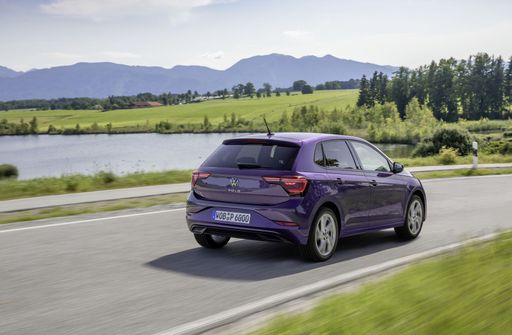 @ Volkswagen AG / VW Media
@ Volkswagen AG / VW Media
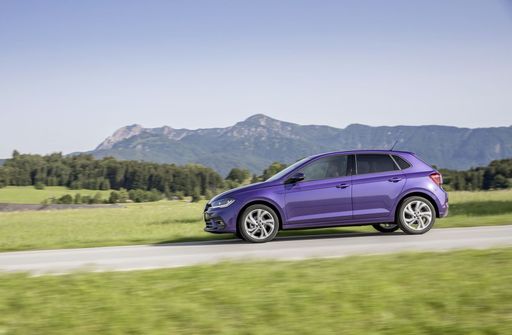 @ Volkswagen AG / VW Media
@ Volkswagen AG / VW Media
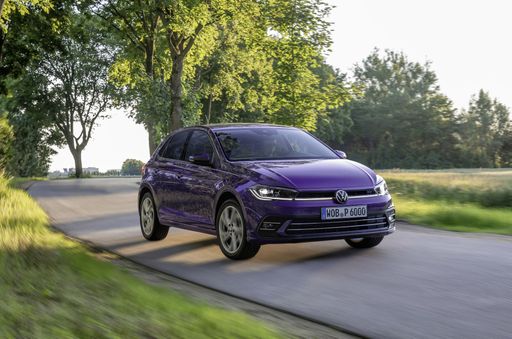 @ Volkswagen AG / VW Media
@ Volkswagen AG / VW Media
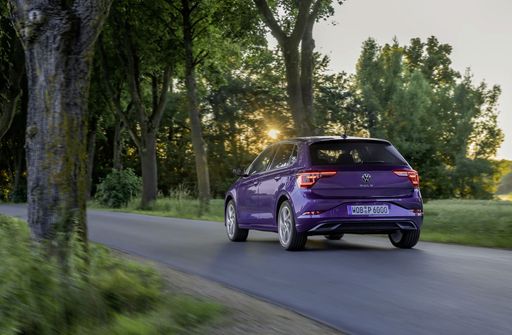 @ Volkswagen AG / VW Media
@ Volkswagen AG / VW Media
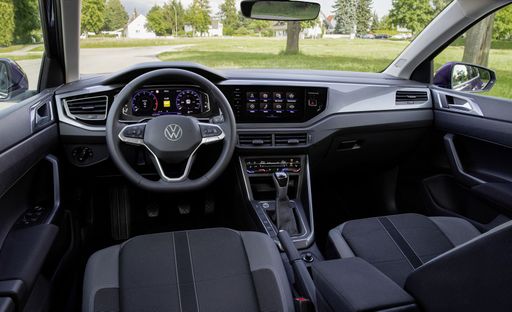 @ Volkswagen AG / VW Media
@ Volkswagen AG / VW Media
 @ Jeep / Stellantis Media
@ Jeep / Stellantis Media
|
 @ Volkswagen AG / VW Media
@ Volkswagen AG / VW Media
|
|
|
|
Costs and Consumption |
|
|---|---|
|
Price
34200 - 43200 £
|
Price
17000 - 30400 £
|
|
Consumption L/100km
5.8 - 5.9 L
|
Consumption L/100km
5.1 - 6.5 L
|
|
Consumption kWh/100km
17.50 kWh
|
Consumption kWh/100km
-
|
|
Electric Range
500 km
|
Electric Range
-
|
|
Battery Capacity
74 kWh
|
Battery Capacity
-
|
|
co2
0 - 133 g/km
|
co2
116 - 148 g/km
|
|
Fuel tank capacity
55 L
|
Fuel tank capacity
40 L
|
Dimensions and Body |
|
|---|---|
|
Body Type
SUV
|
Body Type
Hatchback
|
|
Seats
5
|
Seats
5
|
|
Doors
5
|
Doors
5
|
|
Curb weight
1667 - 2198 kg
|
Curb weight
1143 - 1378 kg
|
|
Trunk capacity
550 L
|
Trunk capacity
351 L
|
|
Length
4552 mm
|
Length
4074 mm
|
|
Width
1928 mm
|
Width
1751 mm
|
|
Height
1675 mm
|
Height
1431 - 1451 mm
|
|
Max trunk capacity
1561 L
|
Max trunk capacity
1125 L
|
|
Payload
-
|
Payload
432 - 457 kg
|
Engine and Performance |
|
|---|---|
|
Engine Type
Petrol MHEV, Electric
|
Engine Type
Petrol
|
|
Transmission
Automatic
|
Transmission
Manuel, Automatic
|
|
Transmission Detail
Dual-Clutch Automatic, Reduction Gearbox
|
Transmission Detail
Manual Gearbox, Dual-Clutch Automatic
|
|
Drive Type
Front-Wheel Drive
|
Drive Type
Front-Wheel Drive
|
|
Power HP
145 - 213 HP
|
Power HP
80 - 207 HP
|
|
Acceleration 0-100km/h
8.5 - 10.3 s
|
Acceleration 0-100km/h
6.5 - 15.6 s
|
|
Max Speed
180 - 188 km/h
|
Max Speed
171 - 240 km/h
|
|
Torque
230 - 345 Nm
|
Torque
93 - 320 Nm
|
|
Number of Cylinders
3 - 4
|
Number of Cylinders
3 - 4
|
|
Power kW
107 - 157 kW
|
Power kW
59 - 152 kW
|
|
Engine capacity
1199 cm3
|
Engine capacity
999 - 1984 cm3
|
General |
|
|---|---|
|
Model Year
2025
|
Model Year
2024 - 2025
|
|
CO2 Efficiency Class
D, A
|
CO2 Efficiency Class
D, E
|
|
Brand
Jeep
|
Brand
VW
|
What drivetrain options does the Jeep Compass have?
The Jeep Compass is available as Front-Wheel Drive.
The prices and data displayed are estimates based on German list prices and may vary by country. This information is not legally binding.
